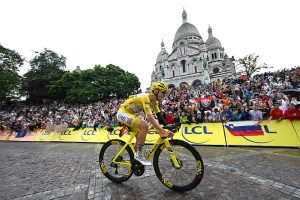
If Arteta Truly Believes Arsenal Are the Best in Europe, There’s a Bigger Issue Than We Thought.
Mikel Arteta has overseen a remarkable transformation at Arsenal. In just a few seasons, he has taken a team that was languishing in mid-table mediocrity and turned it into a genuine Premier League title contender. The club’s tactical shape, defensive stability, and youth development have all improved markedly. However, recent comments from the manager suggesting that Arsenal are “the best team in Europe” raise some serious concerns — not about ambition, but about realism.
Let’s be clear: confidence and self-belief are crucial at the elite level. No top manager gets anywhere without believing in their project and instilling that belief in their players. But there’s a fine line between confidence and delusion. And if Arteta genuinely believes that Arsenal are the best side on the continent right now, then it signals either a worrying detachment from reality or a calculated attempt to protect his squad from scrutiny.
The Facts Don’t Support the Claim
Let’s start with the obvious. Arsenal exited the UEFA Champions League at the quarter-final stage against Bayern Munich — a side clearly in transition and who were well beaten by Real Madrid in the semi-final. Arsenal failed to score in either leg. While they competed well in moments, they didn’t look like a team with the kind of cutting edge or experience necessary to win Europe’s top club competition.
Meanwhile, Manchester City and Real Madrid — the two most consistently dominant forces in the Champions League over the past decade — still look a class above in terms of control, squad depth, and the ability to manage big moments. Even teams like Inter Milan, Bayern, and PSG possess more European pedigree and often demonstrate a stronger mental resilience in knockout games.
Arsenal, under Arteta, are on the rise. But to claim they’re at the summit now isn’t just premature — it’s inaccurate.
Why This Attitude Might Be a Problem
If Arteta’s statement is simply a morale-boosting strategy, it’s understandable. Managers often shield their players or project confidence publicly, even when the internal message might be more nuanced. But if he truly believes it, that presents two main concerns:
- It Signals a Blind Spot in Evaluation:
Accurately assessing your own team’s strengths and weaknesses is crucial for improvement. If Arteta genuinely thinks Arsenal are the best, where’s the motivation to improve? Where’s the recognition of what’s still lacking — whether it be European experience, goal-scoring consistency, or tactical flexibility in high-stakes knockout games? - It Risks Setting Unrealistic Standards for the Fanbase:
Arsenal fans are among the most passionate and loyal, but they’ve been starved of major European success. Suggesting that the team is already at the top could inflate expectations to the point that anything short of a Champions League win next season feels like failure. This isn’t just unfair to the players — it creates a toxic cycle where progress isn’t appreciated unless it comes with silverware.
Progress, Yes. But Let’s Be Honest About the Journey
Arteta deserves immense credit. Arsenal’s 2023/24 campaign has been a step forward. They’ve gone toe-to-toe with Manchester City for a second straight season, have one of the best defensive records in Europe, and boast a young core that can dominate for years. Players like Declan Rice, William Saliba, Bukayo Saka, and Martin Ødegaard are elite-level talents.
But they are not the finished article. The team still struggles in high-pressure moments. The failure to kill off games, the occasional mental lapses, and a lack of ruthlessness in front of goal have all been evident in crucial matches — particularly in Europe. You don’t fix those issues by pretending they don’t exist.
Looking Ahead: Turning Potential Into Reality
There’s no shame in admitting that Arsenal aren’t the best in Europe — yet. What matters is that they’re on the right path. The structure is in place, the squad is strong, and the project has identity and purpose. But to go from potential champions to actual ones, there must be an honest assessment of what still needs to change.
Arteta has been learning on the job, and that includes managing expectations — both his own and the public’s. Hopefully, his comments were more about inspiring belief than expressing literal truth. If not, then yes — we have a problem. Not because ambition is dangerous, but because self-deception is.
Arsenal don’t need to be the best in Europe today. But if they want to be in that position a year or two from now, it starts with recognizing they aren’t there yet.
Would you like a more casual version of this or a version tailored to a specific platform like social media or a fan blog?







